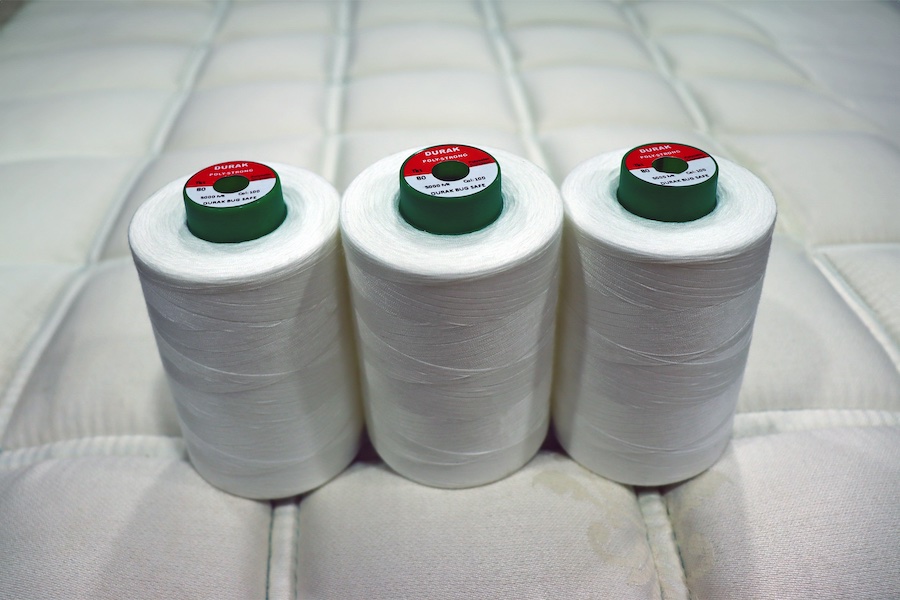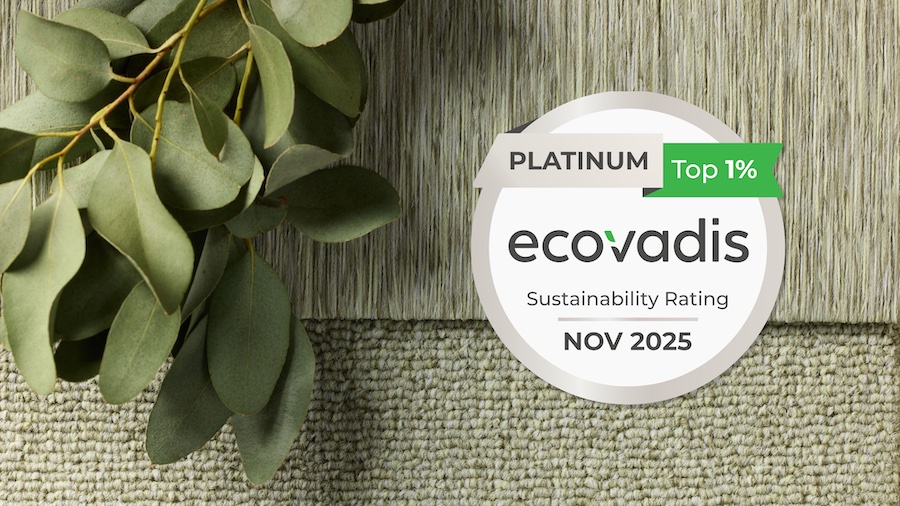#Yarn & Fiber
Global fiber production reached an all-time high of 124 million tonnes in 2023
The data shows that the market share of virgin fossil-based synthetics continued to increase in 2023, with a decline in that of cotton and recycled fibers. Other key takeaways from the report’s data include:
+ Record fiber production: Despite industry efforts, global fiber production has more than doubled since 2000. The last year’s 124 million tonnes represents a 7% increase from 116 million tonnes in 2022, and is expected to rise to 160 million tonnes in 2030 if current trends continue.
+ Synthetics continue to dominate: The production of virgin fossil-based synthetic fibers increased from 67 million tonnes in 2022 to 75 million tonnes in 2023. Polyester remained the most produced fiber globally, accounting for 57% of total fiber production.
+ Recycled synthetics face challenges: Although recycled polyester fiber production slightly increased in 2023, the overall market share of recycled polyester decreased from 13.6% to 12.5%. For polyamide (nylon), the second most used synthetic fiber, recycled fibers constituted only 2% of the total market share. These trends are attributed to the lower prices and continued production of virgin synthetics, as well as current limitations in recycling technologies. Less than 1% of the global fiber market came from pre- and post-consumer recycled textiles.
+ Cotton production saw a slight decline: Total global cotton volumes fell slightly from 25.1 million tonnes in 2022 to 24.4 million tonnes in 2023. However, the share of cotton produced under sustainability programs remained stable, accounting for 29% of all cotton produced.
+ Certified wool climbs: Data showed positive trends for wool produced under standards such as the Responsible Wool Standard (RWS), ZQ, SustainaWOOL (GREEN and GOLD), Sustainable Cape Wool Standard (SCWS) and Climate Beneficial programs. This increased from 4.2% in 2022 to 4.8% in 2023. Recycled wool continued to account for around 6% of the global wool market.
+ Certified mohair and cashmere reached almost half of market share: Certified fibers such as mohair and cashmere saw notable growth, both with market shares of 47%.
+ Manmade cellulosic fibers production increased: Overall MMCF production increased from 7.4 million tonnes in 2022 to 7.9 million tonnes in 2023, representing 6% of the global fiber market.
The report highlights a continued reliance on new virgin fossil-based synthetic materials, threatening to undermine the industry’s commitments to its climate goals. It also shows the current limitations of textile-to-textile recycling and an urgent need for innovative solutions, with most recycled polyester still coming from PET bottles.
Amid these concerns, one positive trend that stands out is the increased industry demand for responsible animal fibers through programs like the Responsible Mohair Standard (RMS) and Responsible Alpaca Standard (RAS), both contributing to better animal welfare and environmental management. This indicates the potential of farm-level standards of this kind to increase market recognition of more sustainable practices on the ground.
“We hope this data serves as a clear call to action for the industry, highlighting both the successes and the critical areas where we must intensify our focus to meet climate targets,” said Claire Bergkamp, CEO of Textile Exchange.
“Unlocking textile-to-textile recycling pathways will be essential to reducing reliance on virgin synthetics. Equally important is continuing to support those on the ground who are driving the transition from conventional systems to preferred materials. It is more urgent than ever to support those who have already invested in preferred systems, while also enabling the transition away from conventional at scale.”













